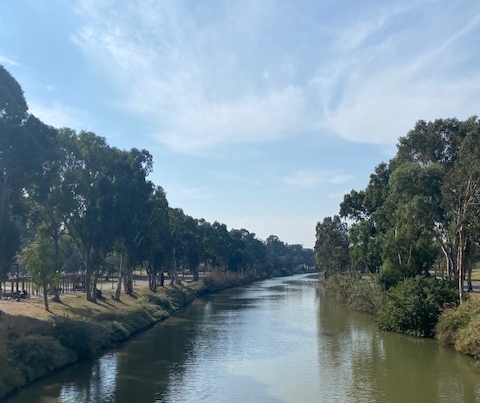Despite Israel’s newly announced dedication to counteract climate change, its implementation is questionable. A new plan, proposed by the Environmental Protection Ministry focuses on the afforestation of street trees and has set a 2.5 billion shekel budget to plant 450,000 trees in 100 cities over the next 20 years. The aim is to provide shade for 70 percent of sidewalks by 2040 and make it bearable to walk outside during the increasing heat waves of the Middle East.

Prime Minister Naftali Bennett stated “The government has set the climate issue as a national goal. Over 90 percent of the country lives in urban localities, and as the climate gets hotter, the harder it is to walk around outside. So we’re preparing to plant about a quarter-million trees in all the city streets we walk.”
While a focus on the urban environment is crucial, it seems at odds with the state’s behavior towards deforestation. According to geographer Shay Hershko, the Agriculture Ministry has granted permission to cut down more trees than what was replanted. Hershko says about 500,000 mature trees have been cut down in Israel in the past two years alone, all to enable more urban development. Despite the new plan in place, the impact of destroying matured trees and forests is dire. Trees that have been around for hundreds of years are vital and have the capacity to absorb more carbon dioxide, reduce pollution, create shade, and prevent flooding due to high water absorption.
The disconnect between the leading figures of Israel can be seen in how the plans to manage climate change move ahead. Even if the street tree planting project takes place, in which afforestation NGO Venatata says “does not appear promising”, the State of Israel is still approving more destruction than creation. Without a harmonious balance between giving and taking, whatever plans are put into place won’t make a difference to what Israel aims to achieve.







